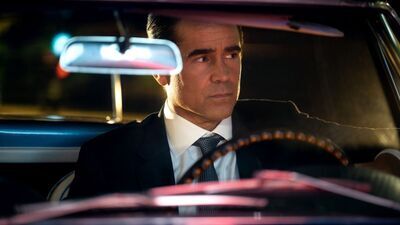While “Sugar” begins in the same vein as many of its predecessors, it quickly becomes apparent that what we’re watching is something special. Detective stories are older than television itself, and with series like “True Detective” and “Perry Mason” what this genre needs to survive is something wholly unique, whether that be character arcs or the twists and turns these series make. Here, the inspirations are glaringly apparent, but they’re crafted in a way that elevates the show’s material, and its characters. The creators know that following a detective can only be so engrossing, and here, the mystery at hand and the people who become entangled in it, aid in a show that feels destined for greatness.
The series follows the titular private detective, who after finishing an assignment in Tokyo, is hired to find the missing granddaughter of enigmatic Hollywood producer Jonathan Siegel (James Cromwell). As he attempts to uncover her mysterious disappearance, the private investigator begins unearthing family secrets that were never meant to be uncovered, propelling him and the Siegel family into a downward spiral. From his own omissions when he narrates to the viewer, to the never-ending hoops he has to jump through to complete this mission, John Sugar is a man cloaked in secrecy. Eventually, these secrets may bury him.

As the series expands, it becomes apparent that “Sugar” is a story about violence. Not only does John hate using it, he’s trapped in a profession that essentially demands it. To get to the bottom of the mystery he’s trying to uncover, John has to use his body to get what he wants, putting it through the ringer until he often succumbs to panic attacks. For most of the series, John’s disposition is unlike most of the people we see him interacting with. He’s kind–sometimes worryingly so–and takes his job more personally than a man in this profession should.

